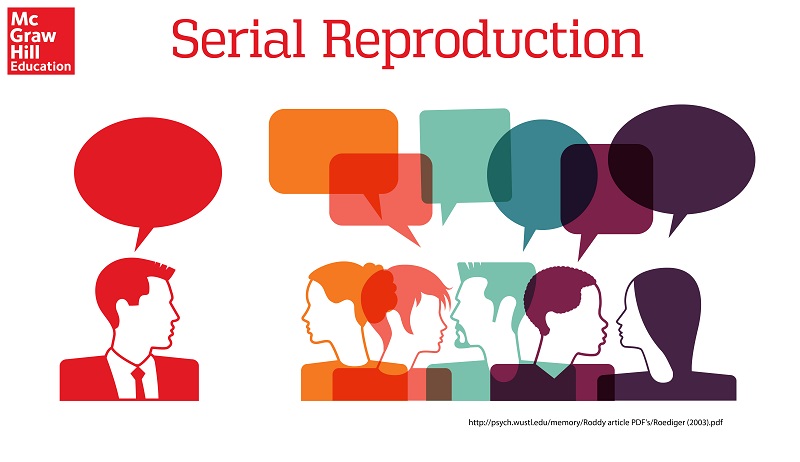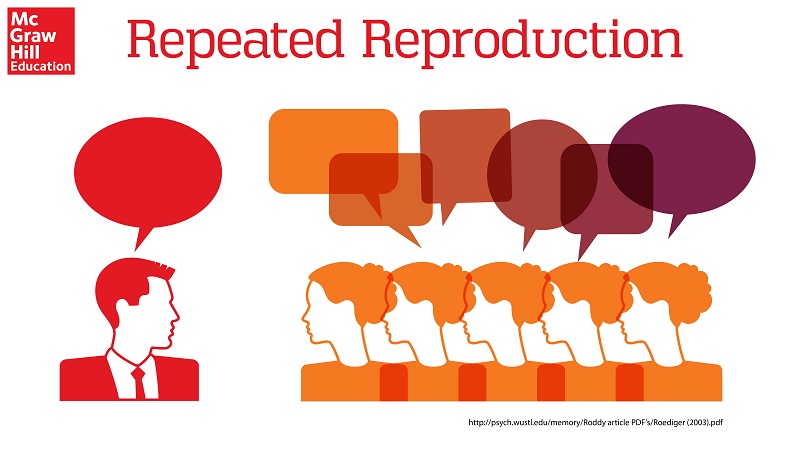According to Bartlett
Inquiry is abundant in the field of instruction. Still, when it comes to learning scientific discipline, some studies stand up out from the rest. We've rounded up a handful of unique and impactful studies relating to learning science that we desire to share with you. These studies, no thing how old, have left a mark on the educational timeline and they go on to inspire current researchers. Over the next several weeks, we will be sharing these studies with you lot. Commencement off, we would like to introduce Frederic Bartlett and his written report on remembering that incorporates the folktale The War of the Ghosts.
Who is Frederic Bartlett?
If you're into psychology, yous have probably heard of Frederic Bartlett. A paper by Henry Fifty Roediger provides details on Bartlett and his prominent works. Born in a pocket-sized boondocks in Gloucestershire, U.k., Bartlett would mature into a well-known psychologist. Every bit a child, sickness prevented him from going to boarding schoolhouse, but Bartlett did not consider this a setback, obtaining educational activity through friends and family unit from the comfort of his own domicile. Bartlett eventually went on to receive a MA from the University of London, followed by a doctorate from Cambridge University, where he then taught. He is most well-known for his research on retention, resulting in his popular volume: Remembering: A Study in Experimental and Social Psychology. In this volume, Bartlett also establishes the popular schema theory.
Research on Remembering
A big portion of Bartlett'due south research relied upon The State of war of the Ghosts, a Native American folk tale. He used the story to conduct two experiments, one focusing on repeated reproduction and the other on serial reproduction. Repeated Reproduction In this experiment, the short story The State of war of Ghosts was read out loud twice to participants. Fifteen minutes later, they were asked to retrieve the story. Post-obit this, subjects would be asked to think the story at various points in time, some up to ten years subsequently. Based on how participants were able to recall the story, Bartlett drew some interesting conclusions near retentiveness.

In about cases, as i might expect, the remembered versions of the story were usually shorter than the original and some parts had been interpreted differently past the person recalling the tale. Bartlett referred to this reinterpretation as rationalization, a way for people remembering the story to make sense of unusual parts. Sometimes, participants would non include parts that didn't make sense if they were not ideas people could acquaintance to a past experience. This typically atomic number 82 to the story condign boring, leaving out the interesting aspects that were harder to think. Serial Reproduction Bartlett's second experiment was very much like the game broken telephone. In this experiment, The War on Ghosts was told to ane person, who would recall it after a sure amount of time. Then that person's recollection was so relayed to some other who would also recall information technology after a sure period of time. This process continued until the desired number of recalls was reached.

Every bit one might expect, the recollection of the story was once once more inverse and simplified. Bartlett noted a bigger change in the differences created through the recall of the story in this experiment. After completing this experiment, Bartlett related these findings to passing downwardly cultural information generation to generation and afterwards theorists would likewise link series reproduction to the concept of rumors.
Schema and Remembering
I of the main theories to emerge from Bartlett'due south work is the idea of schema. As described past Bartlett, schema is "an agile organisation of past reactions, or of past experiences, which must always be supposed to be operating in any well-adapted organic response." That is, certain regular responses and behaviours happen considering they can be related to by experiences that have been serially organized and made sense of and operate in a bigger picture. Roediger describes schema equally "a general system of a story of a typical outcome." For case, detective movies follow the full general schema involving a good detective, a bad villain, a mystery and a resolution. In Bartlett'due south study, he found that both experiments brutal under the influence of schema. In repeated reproduction, when people removed or changed the interesting parts of the tale, they were doing and then to arrive fit into an existing schema they were familiar with. Participants were making an effort to change the story in social club for it to make better sense, according to their standards. In the serial reproduction written report, Bartlett found that the recollected versions of the story were also quickly adjusted to fit more conventional forms or a known schema. In both experiments, adapting the story to fit a schema was thought to be done in an try for the participant to improve remember the tale.
Conclusions on Schema and Retentivity
Based on Bartlett'due south research, he was able to shed light on some of the means the mind works. One of the biggest takeaways from his experiments is how the brain remembers. Instead of reproducing facts, ideas or stories verbatim, people tend to construct them, leaving out details or including new ones based on schemas or personal feel. Every bit Bartlett said himself, "Remembering is non the re-excitation of innumerable fixed, lifeless and bitty traces. It is an imaginative reconstruction or construction, built out of the relation of our mental attitude towards a whole active mass of organised by reactions or experience, and to a lilliputian outstanding detail which commonly appears in image or in language form." The mind is a beautiful thing and the way it works when it comes to remembering can be quite complex. With classic studies like the one conducted past Bartlett, nosotros become closer to understanding how it works and inspiring new ways of researching, learning and instructing based on the results.
Source: https://www.mheducation.ca/blog/series-classic-learning-science-reconstructive-memory-schema-theory
0 Response to "According to Bartlett"
Post a Comment